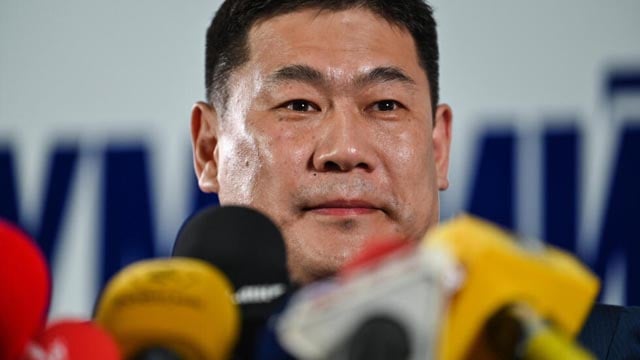News Flash
News Flash

ULAANBAATAR, June 2, 2025 (BSS/AFP) - Mongolia's parliament is expected to vote Monday on whether to keep its fracturing coalition government in office, following protests against the country's embattled prime minister over alleged corruption.
The landlocked democracy in northern Asia has struggled with corruption for decades, and many in the country say a wealthy elite is hoarding the profits of a years-long coal mining boom at the expense of the general population.
Those tensions resurfaced last month after reports of allegedly lavish spending by the son of Prime Minister Luvsannamsrain Oyun-Erdene sparked days of protests in the capital Ulaanbaatar.
Oyun-Erdene is due to address the State Great Khural -- the Mongolian parliament -- on Monday ahead of a "confidence vote" to decide whether the government he heads should continue, according to the prime minister's office.
It would mark the first time a Mongolian prime minister has submitted a confidence motion in their own government and raises the spectre of Oyun-Erdene's resignation if he loses.
Mongolia has been ruled by a three-way coalition government since elections last year resulted in a significantly reduced majority for Oyun-Erdene's Mongolian People's Party (MPP).
But the MPP evicted the second-largest group, the Democratic Party (DP), from the coalition agreement last month after some younger DP lawmakers backed calls for Oyun-Erdene's resignation.
The move pushed the country's fractious political scene into further uncertainty.
Since Oyun-Erdene took power in 2021, Mongolia has plummeted in Transparency International's Corruption Perceptions Index.
The country has seen frequent unrest, and hundreds of young people protested in Ulaanbaatar last month calling for him to step down.
The allegations against Oyun-Erdene's family have hit a nerve at a time when many in the country are worried about their economic prospects and rising living costs.
The prime minister's office has denied allegations of impropriety -- describing them as a "smear" -- and warned of economic chaos if his government collapses.
Some counter-protesters -- overwhelmingly older than their pro-opposition counterparts -- also turned out to support the prime minister last month.